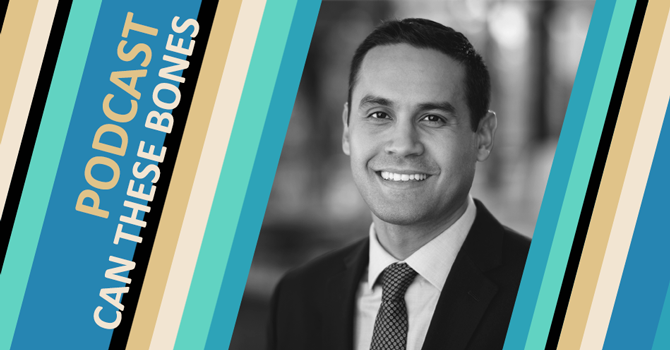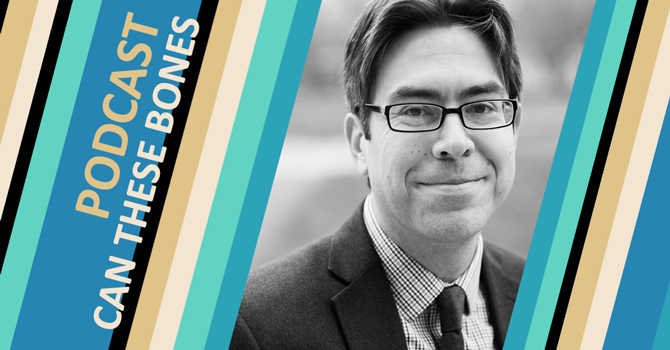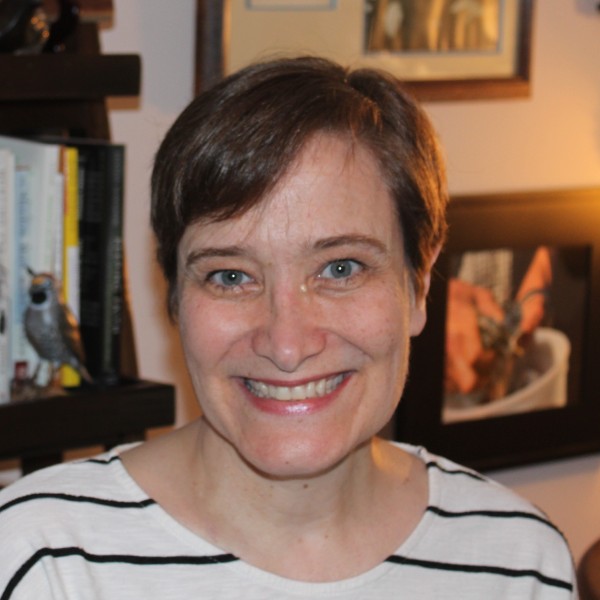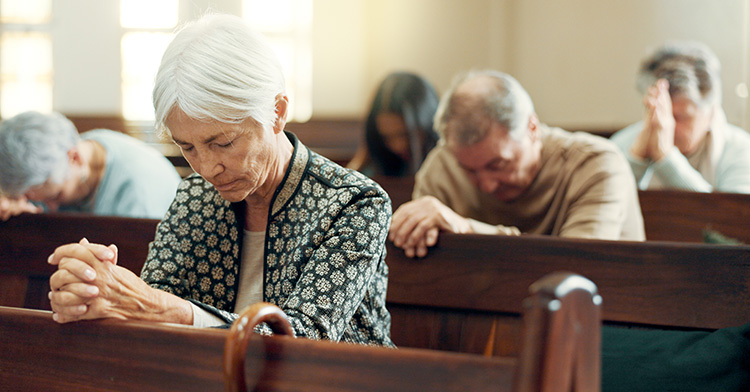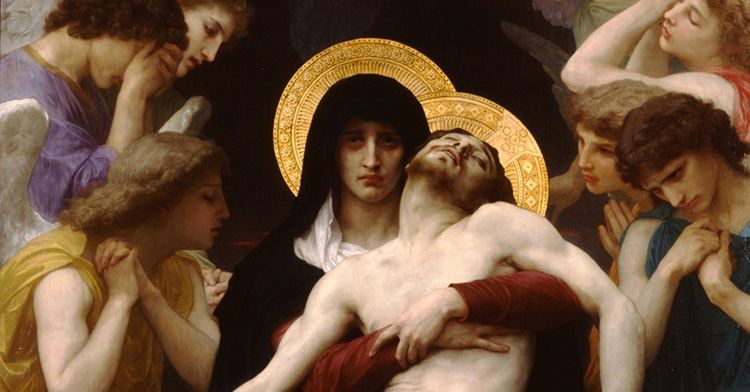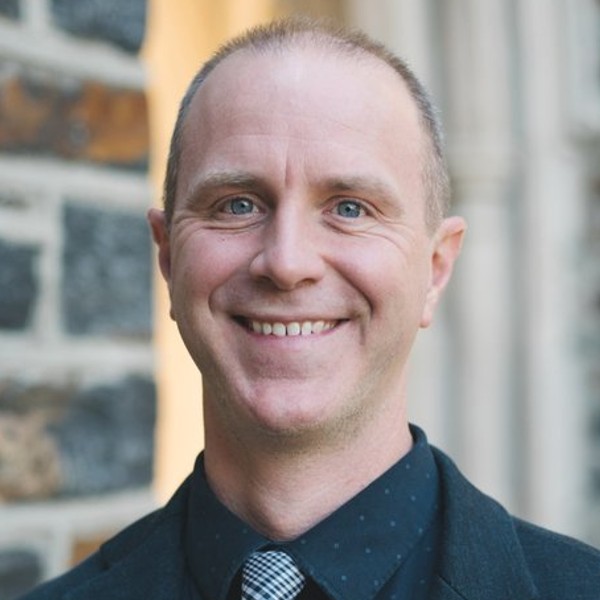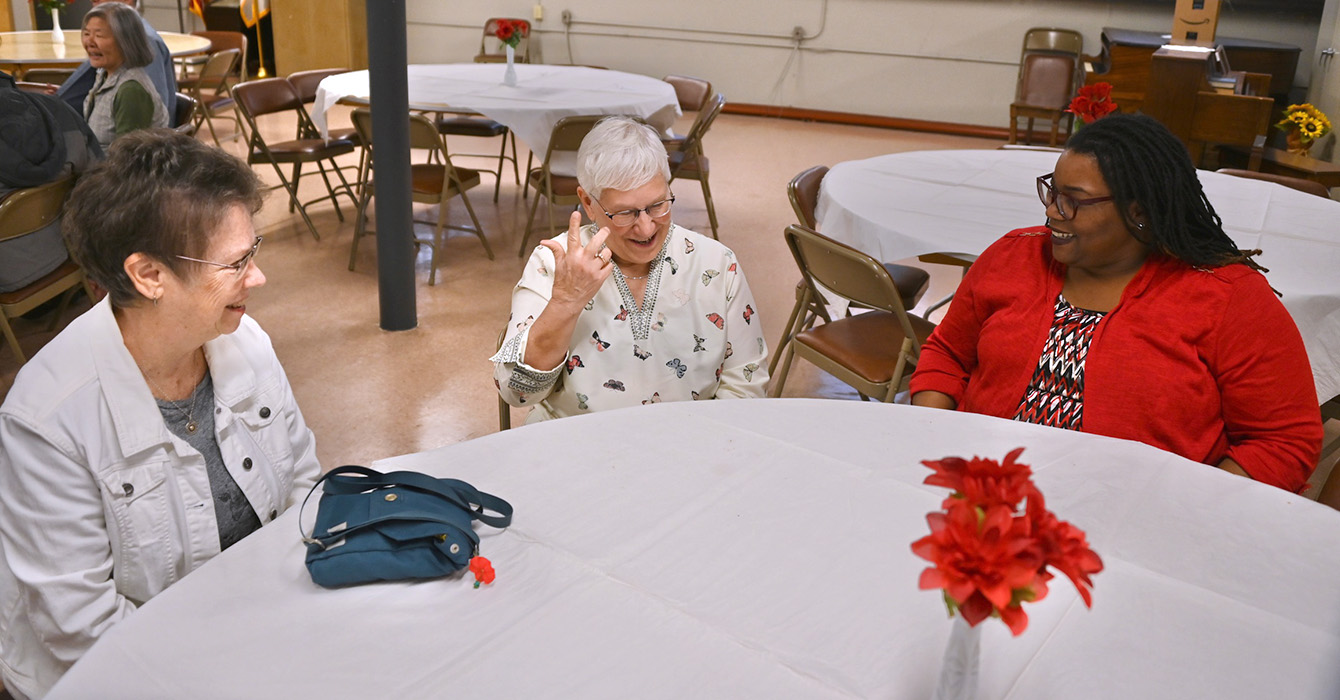Update: Vernon Jordan died March 1, 2021.
Vernon Jordan considered becoming a preacher -- but the law was his calling. Yet the church was a great influence on him. He grew up in and was formed by the African Methodist Episcopal Church. And as an adult, he was privileged to count the great Baptist preachers Howard Thurman and Gardner Taylor as close friends. In this conversation with co-host Bill Lamar, Jordan talks about growing up in Atlanta, leading the National Urban League, how his mentors helped him as a young man -- and why his mother didn’t want him to become a preacher.
This episode is part of a series. Learn more about “Can These Bones” or learn how to subscribe.
Listen and subscribe
More from Vernon Jordan
Audio: Interview with Vernon Jordan by Robert Penn Warren, recorded in 1964
National Urban League
Video: Interview with Vernon Jordan about Whitney Young, from the PBS documentary “The Powerbroker”
“Jesus and the Disinherited,” by Howard Thurman
Faith & Leadership profiles:
“Seizing the moment,” by Richard Newman, on AME Church founder Richard Allen
“Breathtaking: The life and times of the Rev. Gardner C. Taylor,” by Bob Wells
“Writing Benjamin Mays back into the history,” by Randal Jelks
The Birmingham News: “Large part of Martin Luther King Jr.’s legacy built in Birmingham,” by Barnett Wright, on John J. and Addine (Deenie) Drew
Other profiles:
Howard Washington Thurman
Austin Thomas Walden
Donald L. Hollowell
Diane Kessler
Deborah Hafner DeWinter
Transcript
 Bill Lamar: From Faith & Leadership, this is “Can These Bones,” a podcast that asks a fresh set of questions about leadership and the future of the church. I’m Bill Lamar.
Bill Lamar: From Faith & Leadership, this is “Can These Bones,” a podcast that asks a fresh set of questions about leadership and the future of the church. I’m Bill Lamar.
Laura Everett: And I’m Laura Everett. This is episode 11 of a series of conversations with leaders from the church and other fields. Through this podcast, we want to share our hope in the resurrection and perhaps breathe life into leaders struggling in their own “valley of dry bones.”
 A familiar name to many, but to others someone entirely new. Bill, tell us about Vernon Jordan.
A familiar name to many, but to others someone entirely new. Bill, tell us about Vernon Jordan.
Bill Lamar: When you’re a young black man born in 1974 in Macon, Georgia, or anywhere during that era, and maybe a generation and a half prior to my own, your life was populated by Ebony and Jet magazines, these very interesting publications that told the stories of black Americans. And I believe that one of the first times I saw Vernon Jordan, it most likely was in an Ebony or a Jet magazine -- probably a picture of him looking tall and distinguished and commanding and handsome as the leader of the Urban League or as an attorney doing great things or the many corporate boardrooms he became the first African-American to sit in. So he’s just an incredible human being and has accomplished much.
He’s a lawyer, earned a law degree from Howard University Law School, a leader in the civil rights movement, an adviser and close friend to President William Jefferson Clinton. Very influential in Washington. His face and the face of his wife can often be seen in the pages of the Washington social scene. So he moves around quite a bit.
He was executive director of the United Negro College Fund, and he succeeded another one of my heroes, Whitney Young, as the president of the National Urban League. Right now, he’s the senior managing director with Lazard, which is an investment banking firm, and he serves on multiple boards, as I mentioned.
His career has not been without controversy. There was an attempt on his life in 1980. He was shot and seriously wounded. And to this day, he still has to manage his health very carefully because of the bullet wound.
I am privileged to serve as his pastor. He’s been kind enough to open his home to me and expose me to some things and meet some people that probably would not have been possible were I not in Washington, D.C., and were I not his pastor. And so I’ve been very appreciative of his mentorship and guidance and friendship.
He also has become a confidante, and you can depend on Mr. Jordan not to tell you what you want to hear but to tell you what he perceives the truth to be.
And I have to share something very special. In our denomination, the founder is Richard Allen -- and we do know we don’t subscribe to the great man theory of history; Richard Allen didn’t found African Methodism by himself. There were women, such as his wives, first wife, Flora, who died, and Sarah; Absalom Jones; and many, many others who made the AME Church happen -- so I want to be clear about that.
But in order to honor our heritage, we had a U.S. postal stamp issued with Richard Allen’s image on it, and we were very, very excited about that. And Mr. Jordan was one of the main persons who was able to use his powers of persuasion and his long-standing relationships in the government to bring that to pass.
And so on his 80th birthday, Henry Louis Gates, “Skip” Gates, the great scholar of African-American literature, gave him a framed portrait of a Richard Allen stamp. And Mr. Jordan gave that framed stamp that Henry Louis Gates gave him for his 80th birthday to me.
Laura Everett: Oh, Bill.
Bill Lamar: And I was tremendously honored. I keep it in a place where no one can touch it or look at it, so that it might be preserved. But I am very thrilled to be his pastor and to have become his friend, and so excited to have the opportunity to talk with him today.
Laura Everett: Bill, this is a man with an unbelievably full life. Let’s listen to your interview.
Bill Lamar: Mr. Jordan, thank you for joining us.
Vernon Jordan: I’m honored to be here.
Bill Lamar: Thank you, sir. One of the joys of getting to know you as pastor is hearing you tell stories and spin fabulous yarns. And I think that people would be really, really delighted to learn of your personal relationship with two great people in the field of theology and ministry, the great Howard Washington Thurman and the great Gardner Calvin Taylor.
Would you share some stories about your interaction with those two men?
Vernon Jordan: Well, I knew them before they knew me. In 1953, I began my freshman year at DePauw University in Greencastle, Indiana, and my parents and my youngest brother accompanied me to begin my freshman year.
We went to the service at Gobin Memorial Methodist Church, which was the opening service for DePauw University. And the speaker was Dr. Howard Thurman. I knew who he was. I knew he was from Daytona Beach. I knew that he was a Morehouse man. I knew that he was the dean of chapel at Boston University, but I had never heard him preach.
And there were only five black people in this crowded Gobin sanctuary: my family, four of us, and Howard Thurman. And I was just carried away by his style, his form, his drama, and then, of course, his preaching. And I never forgot it.
I went afterward to shake his hand, and he welcomed me and asked me what year I was and all of that. And I did not see him again until he gave one of the eulogies for Whitney Young, my predecessor at the National Urban League. The other eulogy was given by Benjamin Mays. Can you imagine that happened?
Bill Lamar: Wow.
Vernon Jordan: Benjamin Mays and Howard Thurman to give your eulogy? That was something that Whitney Young had surely earned. And I knew that Whitney received counsel from Howard Thurman and went to visit Howard Thurman, and it was at that service that I knew that I wanted to call him. But I did not.
And then a few months later, I was named Whitney Young’s successor, which said again to me that I needed to call Howard Thurman. I did not do it for a year.
And finally I called him up at 2020 Stockton St. in San Francisco. He answered the telephone. I said, “Dr. Thurman, my name is Vernon Jordan.” And he said, “What took you so long?”
[Laughter]
Vernon Jordan: And I said, “What do you mean?” He said, “I’ve been waiting for this call.” And I said, “Well, here I am.”
He said, “I’m coming to New York by train, and we should get together. I’m going to be there for a week.” And I said, “Would you come to dinner?” He said, “Only if it’s four people.” I said, “I can work that out.”
And the fourth person, other than my wife, my then-wife Shirley, was Mrs. Whitney Young. And the four of us had dinner. We began about 7, and about 9 o’clock, I took him to St. John the Divine, where he was lodging. I got him home about 9:15 p.m. And he said, “Would you like a cup of coffee?” And I said, “Sure.” So at 9:15 p.m., I went up to his suite, and we started talking. I left at 6 in the morning.
And he said, “I want you to come to San Francisco. I have a couple of rules. Two hours, preferably three, and no telephone calls.” And so I made my first visit. I got to 2020 Stockton St. at 9 o’clock. Mrs. Thurman met me at the door, took me into his study.
Howard Thurman never walked into a room. He never entered a room; he appeared. And he came in and shook my hand, welcomed me, and then he stretched out on his chaise lounge, and we started talking. We stopped at 1 o’clock. And I did that two or three times a year.
And it’s almost inexplicable what it meant to me, as the young successor to Whitney Young. I was not a social worker. I had just run the United Negro College Fund, but I had not run the Urban League before, and I was new to it. And he was my spiritual anchor.
Now, at the same time, when I came to New York to run the United Negro College Fund, I was introduced to Gardner Calvin Taylor, whom I knew just because I kept up with black preachers. I knew who he was, but I had never heard him preach.
And Deenie Drew, who was the ultimate leader in Birmingham, she and her husband, John Drew, took me to Brooklyn on a Saturday night to meet Gardner Taylor and to try to talk him into joining us for dinner. Gardner said he never goes out on a Saturday night. I’ll never forget that. And he entertained us for maybe 30 minutes in his home and then said, “Well, I’m glad to meet you, young man, and we will see more of each other, but it’s -- I have a sermon to get ready for tomorrow morning at my church.”
And we became great telephone buddies. I would talk to him in his study in the wee hours of the night. And if I needed a Scripture reference for a speech that I was making, I would call him up. And when he needed a legal reference for something that he was thinking about saying, he would call me up. And we would meet for lunch, or we would talk on the telephone.
Many a Sunday, I would get up in Washington, take the shuttle to Brooklyn, hear Gardner Taylor preach, and go back to Washington for Sunday dinner. And I was privileged to give one of the eulogies at his homegoing. The only reason I did not go to Howard Thurman’s funeral was that I was still recovering from my not-so-happy incident in Fort Wayne in May of 1980.
So these two Baptist preachers were my spiritual stalwarts. They were my friends. They gave me advice and counsel, and at times, in various aspects of their ministry, sought my counsel, which for me was a great honor. And not only are they the two most important spiritual leaders in my life; they were two of my dearest friends.
Bill Lamar: Well, thank you so much for sharing that. That has meant so much to me, as you have shared details of those relationships and I get a chance to live vicariously through you in those relationships.
I wanted to also ask about something that has intrigued me in our conversations -- your own flirtation with a life in ministry. Would you share some of those stories?
Vernon Jordan: Yes, I grew up in St. Paul African Methodist Episcopal Church in Atlanta. My parents met there. My father was a chauffeur; my mother was a cook for rich white people in Atlanta. And my mother was an usher, and my father sang in the choir. So all of my life, every Sunday morning, I walked to Sunday School with my father, and my mother joined us at St. Paul Church for service, and we always took some sister home for dinner on Sunday afternoon.
And so I sang in the St. Cecilia [Children’s] Choir [at St. Paul]. I went to my Boy Scout troop one day a week and to choir rehearsal on Monday and Friday for the St. Cecilia Choir, underwritten by Dr. Richard A. Billings, a wonderful man who had a great influence on my young life. I also gave the best Easter speech, and I won the biblical contest.
And Sister Fannie Green came home with us for dinner once and said to my mother that Vernon Jr. is going to be a preacher. And my mother said, “Sister Green, Vernon Jr. is not going to be a preacher.” And Sister Fannie Green sort of argued with my mother, and my mother put it to an end by saying to her, “Sister Green, Vernon Jr. is not going to be an AME preacher, because no son of mine is going to spend his career kissing the bishop’s ass.”
[Laughter]
Bill Lamar: I try not to do that, Mr. Jordan.
Vernon Jordan: I’m confident of that. But I kept thinking about it. And then I went to college, and in my sophomore year, the chaplain at DePauw University convinced me that I should go to New York to Union Theological Seminary to a conference on the ministry designed for young men who were pursuing other disciplines but whom the chaplain, the professor, the teacher thought ought to be exposed to the ministry.
And so I came on my first trip to New York by train from Greencastle, Indiana, and spent a week at Union Theological Seminary listening to Paul Tillich and Reinhold Niebuhr and James Robinson, of the Church of the Master. And I was fascinated by it. I was frightened by it, but I was also challenged by the thought of it.
And I went back to school and took courses in philosophy, and some religious courses. And then in my senior year of college, I applied to law school but also applied to seminary. I graduated, went to Chicago, and I was driving the city bus in the summer of 1957.
And in the midsummer, I wrote to the seminaries, and I said, “I have spent the summer trying to determine whether to spend my life at the altar or at the bar. And in the process, I have discovered sin, and I like it. I’m going to law school.”
And that was the right decision for me.
But there is a sadness to that aspect, and that is that my pastors at St. Paul AME Church never took me in; they never sought to encourage me. Somebody would say, “That Jordan boy’s going to be a preacher.” And the preacher would say, “Yeah, that’s right.” But the preacher never did anything about it. And that’s something that the African Methodist Episcopal Church needs to think about.
Bill Lamar: So may I ask? Do you think if the preacher had intervened and helped to form you vocationally, you might’ve taken a different path?
Vernon Jordan: Possibly. Not if my mother had anything to do with it, but possibly. But the disappointing thing was that I was a pretty talented kid. I made good grades in school. I won oratorical contests. I won the state Elk oratorical contest in Georgia. I won citywide essay contests. And my teachers in elementary school and at David T. Howard High School were all very encouraging. I did not get the kind of encouragement that I think I should’ve gotten from the ministers at St. Paul.
Bill Lamar: I want to ask you about the fact that you have given much of your energy to institutions, to the United Negro College Fund, to the Urban League. And in your leadership of those institutions, tell me about what helped to make them stronger as you were a part of their work.
Vernon Jordan: Well, my avocation was always to be a lawyer. Austin Thomas Walden from Fort Valley, Georgia, graduated from the University of Michigan; he would come to St. Paul AME Church once or twice a year to speak at the St. Cecilia Choir vesper hour on the fourth Sunday at 5 o’clock. And I loved hearing him talk. He would talk about segregation, and he would say about segregation, “I’ll be glad when you are dead, you rascal, you.”
And so I grew up wanting to talk like Walden, walk like Walden, dress like Walden and hang out my shingle on Auburn Avenue like Walden. He was my inspiration as a young man. I saw him -- his office was next door to the Butler Street colored YMCA, where I spent an awful lot of time. And J.D. Runston, who was the boys’ work secretary, would get me and take me over to Colonel Walden’s office, and I would fold the letters to go into the envelopes with the endorsement of the Atlanta Negro Voters League.
So I knew that I wanted to be a lawyer. I knew that I wanted to do something about the segregation that I was experiencing -- using in 1951 a textbook that had been used by a white student in 1935. The per-pupil expenditure when I was in public schools in Atlanta for black students was $1; for white students, it was $4. My senior year in high school when I played the E-flat tuba, it was a bent-up, beat-up, hand-me-down E-flat tuba from the white schools.
So it was a passion for me to get myself properly educated and trained to come back home to be a lawyer. I graduated Howard University Law School on a Friday, first Friday in June of 1960.
On Monday morning following, I went to work for Donald L. Hollowell -- a great, great man -- for $35 a week, with a wife and a child, and I was as happy as I could be. And I am so grateful to Donald Hollowell and Austin Thomas Walden for the inspiration and for the example they set for my life.
Bill Lamar: Now, you have had a life of great proximity to power, to presidents, to wealth, corporate boardrooms. Having been formed in the faith and having this strong spiritual core, talk about what it has meant to you to move through those places of great power.
Vernon Jordan: I tried to move through these places never forgetting from whence I came, never forgetting how I got there and who helped me to get there.
Bill Lamar: And it seems like one of the ways you think about it is you are surrounded by a great cloud of witnesses, that you have a debt of gratitude for those who paved the way for you.
Vernon Jordan: I am not sure about much, Dr. Lamar. I am certain about one thing, and that is to the extent that I have had these experiences, I am confident that I did not get there by myself.
There was a lot of pushing and pulling and encouragement and inspiring from the Butler Street YMCA, to Walker Street School, to Edmund Asa Ware Elementary School, to David T. Howard High School.
I would like to write another book. I would like to write a book about those people who made my life what it is by pushing and encouraging and inspiring me to excel and to do well.
Bill Lamar: Two things, Mr. Jordan, as we conclude. As you think about where you have been, what is one of the accomplishments that you have made of which you’re most proud? And what is it that you are working on now that is giving you energy?
Vernon Jordan: Well, at 82, energy is a problem.
[Laughter]
Vernon Jordan: But I’m still an investment banker at Lazard in New York four days a week, and I continue to practice law every Friday in Washington. At 82, I have two jobs in two different cities. And I have -- the thought of retirement frightens me, and so I continue to look forward to going to work.
I look forward to getting to Metropolitan AME Church when I can, and to Rankin Chapel at Howard when I can -- my two favorite places. And if I’m ever in Atlanta, I try to get to St. Paul AME Church, where I grew up.
Bill Lamar: Will you share with us the conveyance that takes you from Washington, D.C., to New York? I love to hear you talk about that transportation that you take, the way that only you can say it.
Vernon Jordan: The choo-choo train, absolutely. And as soon as we finish this wonderful conversation, I’m going to go get on the choo-choo train, and in three hours I will be in the District of Columbia with you, sir.
Bill Lamar: Final question, and I’m so appreciative of your time. The title of this podcast is “Can These Bones,” and I know if anyone knows the story in Ezekiel, you know it well.
You mentioned what happened to you in May of 1980, your being shot, and I know also, those who know your story, that your first wife died while you two were married.
And I wanted to ask you, in the midst of having dealt with such pain and death, what gives you hope, and where have you seen resurrection? Where are you seeing resurrection?
Vernon Jordan: My mother wrote to me every day from the time that I went to college until I finished law school. Some letters were long; some were short. Some were sad; some were glad. Whatever the basic nature of the letter, she always told me two things. One: “Son, if you make a dime, save 2 cents.” Secondly, she ended every letter with this sentence: “Son, if you trust him, he will take care of you.” That’s been my guide.
Bill Lamar: Mr. Jordan, it is an honor to have you on our podcast. Thank you for agreeing, and it’s a joy to serve as your pastor and to share your wisdom and your hospitality. I hope that you travel safely, and I look forward to seeing you when you get back to Metropolitan.
Vernon Jordan: Thank you.
Bill Lamar: Thank you, sir.
Laura Everett: That was my co-host Bill Lamar’s conversation with Vernon Jordan, a civil rights leader and a longtime political figure.
What a remarkable conversation with Mr. Vernon Jordan. Two things I want to start off with: I can live my whole life and still never tell stories of grace and fortitude like Vernon Jordan. That man is an unbelievable storyteller. And secondly, that is quite a congregant to be sitting in the pews as you preach.
Bill Lamar: It is quite daunting, because he has heard preach all of my heroes. So it is quite daunting. But he still says nice things to me, probably so that I will not crawl into a hole and never come out again. He’s been very, very encouraging.
Laura Everett: Let’s talk about two of those preachers, Howard Thurman and Gardner Taylor, and the mentoring that Vernon Jordan experienced from them. I’m curious -- what did you learn from that conversation about how he was mentored and the kind of mentoring you want to do?
Bill Lamar: Some of the conversations that we’ve had [for this podcast] have been with folks who are outside the church, and we’ve gleaned knowledge to help us do our work of ministry and institutional service better.
It seems to me that Vernon Jordan has mastered understanding what can be gleaned from folks who have spent their lives in the church and doing theological work, and applying that to his corporate work, his legal work and his work of community service.
So Howard Thurman -- and for me, and it’s not “Howard Thurman,” but “Howard Washington Thurman,” blessed be he -- just an incredible, incredible man. He was fashioned by the faith of his grandmother, who -- I call her the original womanist theologian, because his grandmother refused to allow him to read the writings of Paul, because of Paul’s writing of slaves and being obedient. And having been enslaved, she wanted no part of any God or any person who served God who was in any way interested in slavery being perpetuated.
So having experienced profound love, but also profound rejection, and coming from that, [Thurman] produces “Jesus and the Disinherited.” People have said that King carried that book around with him, along with Scripture. I mean, he formed Martin King, along with Benjamin Elijah Mays, to have a vision of the world that was broader than the United States, to understand God moving in ways beyond the sectarian and Christian dogma to understand the fellowship and the kindred of all human beings.
So Vernon Jordan, growing up in Atlanta, would’ve been around all of this. I mean, he’s younger, a little younger than King, and much younger than Thurman, but he sought out these wise voices. I really do believe that his spirit connected with Thurman, and he -- I mean, he tells of being in Thurman’s home. And I just get goosebumps; I mean, the nerd juice is flowing at maximum strength. It’s just an amazing thing.
And then to speak of Gardner Taylor, who, to me, was just the poet laureate of the pulpit. I was listening to him early one Sunday morning before preaching myself and almost convinced myself that I should just stay in my apartment, or if I went to church, just press “play.”
[Laughter]
Laura Everett: That’s right.
Bill Lamar: His soaring language. And so [Jordan] was just drawn to these people. And I really think, listening to Mr. Jordan, Laura -- and you have talked about this, we’ve talked about this -- his ability to regale with stories. I think that language, the language that he learned with the Easter speeches, the language of the church, the language he heard from Thurman -- it drew him.
And I really believe that what makes Mr. Jordan so special is that he has spent a life crafting words, deepening relationships with persons who’ve spent a life with words, and he clearly understands, unlike many people living today, what a word well-spoken, well-chosen can do. A word well-spoken, well-chosen can indeed change the world. And I think that’s why he was so enamored with -- and I would say intoxicated by -- Howard Thurman and Gardner Taylor.
Laura Everett: I think part of what I find so beautiful about this interview is the range of people who have shaped Vernon Jordan’s life. You called it a cloud of witnesses. And I’m so grateful for someone who models for me an honoring of both the boldface names and the names who might’ve been lost to history.
Bill Lamar: I think about some of the stories that Mr. Jordan has shared. His mother called him “Man” -- M-a-n, Man. And I’ve thought about that a lot. I think that his mother was speaking prophetically and speaking in a way to protect him, because I think she knew that as a black man born in Atlanta in the ’30s, that there would be constant assaults on his manhood. But she reminded him every time she called him, wrote him and called him “Man” that indeed, that’s what he was, a man. And in the words of the great theologian Muddy Waters, a “full-grown man.”
And he has indeed, throughout his life, exerted himself as a man. And by that I mean someone who lives by conviction, someone who has used his own privilege to open doors and to share, someone who has not forgotten what it means, what it meant, to struggle.
Laura Everett: Let’s talk for a minute about some of those places where doors aren’t opened. One of the most remarkable things about this conversation is Mr. Jordan’s flirtation with ministry -- with formal and ordained ministry, let me say that. More properly, we are all called to ministry by virtue of our baptism. I expect to hear emails from folks correcting me on that. That’s Laura@ -- yeah.
[Laughter]
So Vernon Jordan has this consideration of ministry, and he spoke about someone saying, “That Jordan boy is going to be a preacher,” and the preacher said, “Yes,” but then the preacher never did anything about it. What a poignant story about -- it wasn’t a lack of affirmation, but it was a lack of follow-through. Right? When you heard that, what were you thinking about those pastors who noticed but did not kindle the flame that was there?
Bill Lamar: Laura, I think two things. First of all, when you consider, even to my own childhood, black men in America -- and I just want to speak about men for a second, because of Mr. Jordan and myself -- if you had a strong streak of intellectual independence and that was going to drive who you were going to be vocationally, ministry was one of the few options that you had.
And so to me, I was not at all surprised that someone as independent and vocal as Mr. Jordan had considered ministry, because it was a place where black men -- only, or mostly in that period -- could do intellectual work apart from the white gaze and white policing.
I think that many a bright young man in Mr. Jordan’s era considered ministry, and I think Mr. Jordan especially, because if you think about it, I mean, he was drawn to preachers, and not just any preachers, but the best. I do resonate with the challenge of how do you nurture someone toward ministry who has special gifts.
It’s very fascinating. I think about my own call. My grandmothers, both of them, said to my parents, “That boy’s going to be a preacher.” My parents have shared with me that they discerned that early.
But the gift, for me, is that they did not say that to me, because they knew that I was a pleaser and I probably would’ve gone in that direction just because they mentioned it. They allowed me to discover what God was doing myself.
And I think there are two things. There’s a cautionary tale about pushing people into ministry because they show certain gifts. I think it would’ve been very commendable if those ministers had just spent time with Mr. Jordan when he was young, asking questions about who he was, what he wanted to be.
I think it’s dangerous to push people in a direction of ministry, but I think it’s a travesty -- ministry malpractice -- when you see people that have certain gifts, who are very young, not to engage them in conversation, leave the door open and put down bread crumbs so if the trail of ministry is the trail for them, they’ll have a clearer path.
So I want to hold some things in tension, but I really, really appreciated what Mr. Jordan said.
Laura Everett: That practice of encouragement -- I was so struck by the message that Vernon Jordan’s mother said in every letter: “Son, if you trust him, he will take care of you.” And what a profound blessing to speak into someone’s life who very intentionally put himself in places of conflict, of contention, in the service of justice and the equal dignity of black people at a time when this country was not going to give that willingly and without a very serious fight.
And the example of a vocation -- he spoke about Austin Thomas Walden, and I confess I didn’t know who Austin Thomas Walden was, and I went back and read a little bit more about his career. And that he would come back to St. Paul’s AME Church to speak to the St. Cecilia Choir vesper hour, and how much Vernon Jordan loved hearing him talk.
And that in Austin Thomas Walden, Vernon Jordan had an example of a life he could live, a person he could be, a way he could live out his sense of calling and justice in the world.
I think of the women in ministry who were examples for me. I think of Diane Kessler and Deb DeWinter and Lydia Veliko, who spoke words of encouragement into my life but also showed me what a life devoted to the church could look like.
Bill, I’m wondering in your life, who are the people who kept showing up, who gave you an example of vocation?
Bill Lamar: Those persons, Laura, are myriad. One is the pastor who helped to form me, who is now a bishop in our church and was my pastor at Bethel AME Church in Tallahassee, Florida, Bishop Adam Jefferson Richardson Jr.
He didn’t know me, but Bishop [William] DeVeaux read something that I had written in The Christian Century; right now, a great mentor for me is my presiding elder, my immediate supervisor, Ronald Eugene Braxton, who is a breath of fresh air and someone who will tell you the truth, lovingly. I don’t make many moves without consulting him.
Presiding elder James Melvin Proctor, a man of wisdom and great stature, who encouraged me to get in the work of agitation and organizing.
And not just them, but very faithful laypersons who made sure that I had money for seminary: Miss Mattie Green, God bless her soul.
And for me, the highest place of privilege is reserved for my own biological family: my mother, my father, my grandparents, uncles, cousins, aunts, who surrounded me with love and who showed me what discipleship looked like.
And most of all, I’m sending cards and crisp $100 bills to all of those people, because they were patient with me as a young man who had a question -- every time I inhaled, with every time I exhaled, a question attended it. I drove many people crazy.
Laura Everett: You were that kid in Sunday school, huh?
Bill Lamar: Yes, I was that kid. One of the things that I want to mention -- again, I’m not boasting, but I tell you, there’s nothing like being formed in Southern black churches, because people are well aware of the goodness of God, but also well aware of the hell outside the doors.
And one of the things that they did brilliantly, the ancestors did brilliantly, was prepare us with Easter speeches. Daniel Black, the great author [I spoke with in episode 7], and Vernon Jordan, unprompted, both mentioned Easter speeches. As kids, we were given speeches to memorize on Easter Sunday, to stand in our Sunday best and proclaim that Christ has risen. Some really bad poetry, some really good Scripture -- we were called to memorize a lot of stuff.
And what’s interesting is the child who was the smartest and who had the best elocution and diction was not the one who got the most applause. But the child who stumbled through and worked hard would get a standing ovation, because the church was encouraging that young lady, that young man to continue to do the hard work that would give birth to excellence in their lives, to generational excellence.
And so what is clear about Vernon Jordan, what is clear about so many people, is were it not for the brilliance of the people who made those institutions work in the midst of unspeakable hostility, he would not be where he is.
Laura Everett: It’s so clear that that internal fortitude, that sense of one’s own dignity and blessedness as a beloved child of God, when everything in the world is telling you otherwise, that that is part of the strength that leads Vernon Jordan into a life of, really, devotion to some pretty major institutions.
I think about that vision of black churches forming youth to be in public leadership. And how Vernon Jordan was the only black student in a class of 400 at DePauw, and what it must have been like at that moment. And how the formation he had received as a young person in the church kept speaking a word of dignity and blessing and affirmation into his life. My God, the amount of courage and strength to be the only black student in a class of 400, so far from home.
It says two things to me. One, it says Vernon Jordan has led an unbelievable life, and there’s much to learn here. But it also gives me real hope for what the church can be and how we can form people to claim and live into their dignity and their giftedness as children of God, even when the rest of the world cannot see that gift.
Bill Lamar: What was intriguing and also blessed was that Vernon Jordan is not so much talking about the past as he is moving into his future, as a man over 80. He shows that one does not have to stop, that one does not have to retire “from their passion,” but you can continue to move.
And it seems to me that, in the words of my late grandfather, Mr. Jordan will not “rust out,” but he will “wear out.” He’s going to keep doing what it is that he needs to do. That was so refreshing.
Laura Everett: I think that’s also a word of affirmation and blessing to our listeners. Thanks for this conversation.
Bill Lamar: Thank you for listening to “Can These Bones.” There’s more about Mr. Vernon Jordan, including archival audio interviews from 1964, at www.canthesebones.com.
Who are we talking to next time?
Laura Everett: I had a great conversation with Matt Croasmun, who teaches a wildly popular course called Life Worth Living at Yale College.
Bill Lamar: “Can These Bones” is brought to you by Faith & Leadership, a learning resource for Christian leaders and their institutions from Leadership Education at Duke Divinity. It’s produced by Sally Hicks, Kelly Ryan and Dave Odom. Our theme music is by Blue Dot Sessions. Funding is provided by Lilly Endowment Inc.
We’d love to hear from you. Please share your thoughts about this podcast on social media. I’m on Twitter @WilliamHLamarIV, and you can reach Laura on Twitter @RevEverett. You can also find us through our website, www.canthesebones.com.
I’m Bill Lamar, and this is “Can These Bones.”
This transcript has been edited for clarity.






